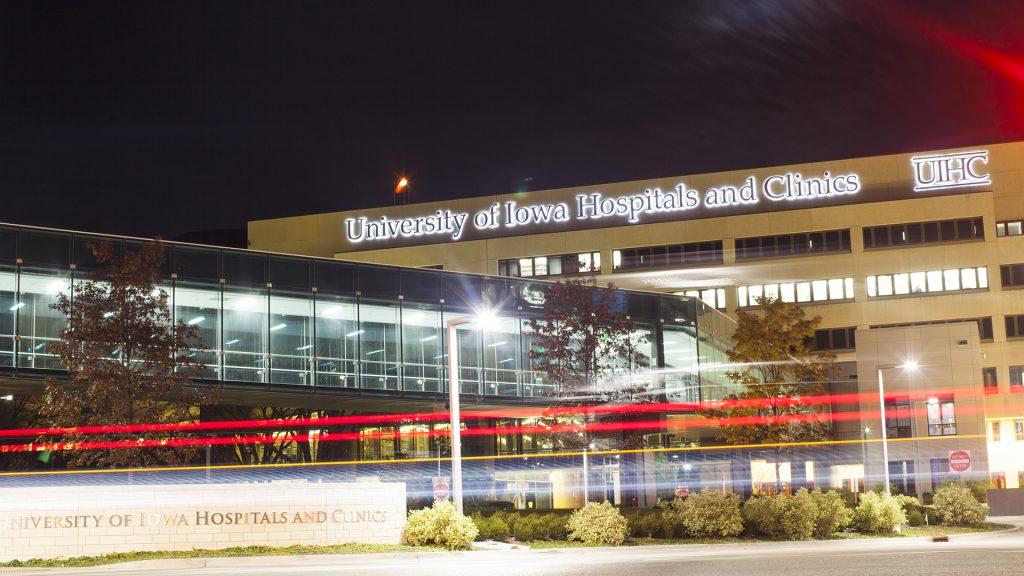UI Health Care relies on university support to continue its excellent teaching, research, and care.
It’s the type of question college graduates are sometimes asked during a job interview: Where do you see yourself in five, 10, or 20 years?
It’s a question we Iowans should ask about the future of our state universities.
The state appropriation for the University of Iowa for this fiscal year is $216 million. This appropriation is $7 million less than it was 20 years ago, despite the fact that the UI has nearly 5,000 more students than it did in 1998, and the overall state budget is nearly $3 billion larger than it was in fiscal year 1998.
RELATED: Guest Opinion: State budget cuts jeopardize Iowa nursing education
I joined the UI in late November, so I am admittedly new to Iowa. However, I’ve met and talked to a number of people both inside and outside our university. It’s clear to me that Iowans are friendly, hard-working, collaborative, and genuinely interested in seeing their communities thrive.
They’re also extremely proud of their state and its state universities — especially the UI.
As part of the leadership team for UI Health Care, I’m proud of what we provide for Iowa in return for its investment in state support. For example:
The Carver College of Medicine is a highly regarded medical school, with a dynamic curriculum and nationally ranked programs. Roughly half the doctors across Iowa received their medical education or residency training through the UI.
RELATED: Guest Opinion: Despite fiscal constraints, UI committed to excellence
Our research enterprise includes some of the world’s top scientists and staff who collaborate with colleagues across the entire UI campus. Programs such as the Iowa Neuroscience Institute, Fraternal Order of Eagles Diabetes Research Center, Holden Comprehensive Cancer Center, and Pappajohn Biomedical Institute foster multidisciplinary research that turns discoveries into real-life applications for human health.
UI Hospitals and Clinics and UI Stead Family Children’s Hospital are home to nationally ranked programs in adult and pediatric specialty care. More than 1,000 UI physicians provide comprehensive care here and in clinics across the state. We also have strong partnerships with other Iowa health systems involving data sharing and technology, telehealth, education and training, and outreach services.
Clearly, UI Health Care does not exist, nor can it continue to succeed, in a vacuum. Our enterprise relies on a strong UI as a whole — as a pipeline for talented medical and health professions students, for cross-disciplinary research collaborators and technology transfer specialists, and for a well-educated, diverse, and dynamic workforce that maintains our patient care enterprise.
RELATED: Guest Opinion: Resources necessary to support research that enhances lives
Cuts in state funding for the UI have both immediate and long-term consequences. We risk losing faculty (and their externally funded research programs) as well as talented administrators, staff, and students to private or adequately funded public universities in other states. This also would negatively affect Iowa’s future in strengthening communities, doing business, and raising families.
And that future lies in our young people — not just those currently enrolled in our state and private universities and community colleges but those who are still in high-school and even those who have not yet started kindergarten. What kinds of college degrees, jobs, and careers will Iowa high school graduates from the class of 2030 wish to pursue? What opportunities will be available to them?
Where will they see themselves in 20 years?
Most important, will it be here in Iowa?
– Brooks Jackson
M.D., M.B.A., is University of Iowa vice president for Medical Affairs and dean of the UI Carver College of Medicine
#NoFundingNoFuture
As the UI seeks funding from the state Legislature for its fiscal 2019 appropriations request and faces the possibility of more midyear budget cuts, the DI will publish informational pieces and pieces from UI community leaders highlighting the value of higher education and calling for advocacy. Continue checking dailyiowan.com as Iowa’s universities face this critical issue.



